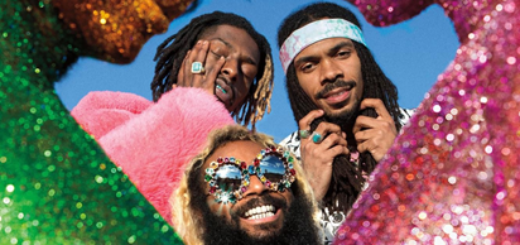FRONT ROW SEAT TO EARTH by Weyes Blood

Genre: Indie Folk
Favorite Songs: “Generation Why,” “Can’t Go Home,” “Seven Words”
The first word that came to mind after the first listen to FRONT ROW SEAT TO EARTH was “dramatic.” Natalie Mering warbles in a sweeping alto throughout the album over a series of songs that borrow equally from ’60s and ’70s pop (she’s a particularly clear disciple of Kate Bush), Benjamin Britten-esque vocal harmonies, and the intimate, confessionally-angled songwriting of modern indie folk. It’s an interesting mix of influences that comes out as a fairly unique sound, like a more subdued and classical sounding Florence + The Machine. However, FRONT ROW SEAT TO EARTH suffers drastically from a lack of imagination, making Weyes Blood come across as an artist that is solely focused on putting together aesthetic elements rather than creating good songs. Her songwriting is unremarkable and unmemorable and her musical arrangements lack imagination. While it succeeds in communicating emotion to the listener through the sheer weight of her more “dramatic” artistic choices, it feels more like a giant weight being put on the shoulders of the listener, rather than the cathartic experience that most look for from “sad” music. FRONT ROW SEAT TO EARTH is a bloated and ultimately disposable mess that could have been saved by a little bit more of a precise approach from its creator.
The opening song on the album, “Diary,” is by far the worst offender of almost all of this album’s sins. Opening on a series of piano chords that sound like the opening of a particularly wishy-washy Donovan song, the song incorporates harp swells, huge amounts of swirly reverb, and a strangely jarring drum backbeat. It’s intended to make the listener feel like the song is growing into something, but it never does, instead remaining centered around those chords, which end up sounding more amateur than epic. “Used to Be” is really more of the same, a song driven (again) by a vocal-piano-Wurlitzer combination that we’ve heard plenty of times before. This one is saved a bit by a slightly soulful, “Hey Jude” meets “I Will Always Love You” kind of section in the middle, but spends most of its time drowning in its own reverb.
The album does turn itself around toward the end, when the songs stop aiming for stadium-level soaring. Weyes Blood is by far her best when she allows her voice to take front and center, and though the results aren’t groundbreaking when she does, they are certainly more memorable. “Generation Why” features a much more textured and tasteful arrangement, centered around vocal harmonies and acoustic guitar, and “Can’t Go Home” is exclusively vocals and synth pads. These vocally oriented (and more classically influenced — this is not a coincidence) songs are where Weyes Blood’s ear shines, as the harmonies are gorgeously layered and far more pleasant to listen to than her band-backed songs. Lead single “Seven Words” is the closest she comes to making the vocal harmonies work with the band, in large part because her vocal harmonies, which are far superior to her instrumental arrangements, are featured in a way that she chooses to feature organs and pianos in other songs. If she can generate more arrangements like it, her future as an artist is much brighter than it currently looks.
This isn’t a bad enough album for Weyes Blood to be written off entirely, as FRONT ROW SEAT TO EARTH’s flaws are very fixable and probably just require exposure to larger audiences and, even simpler, repetition and practice. Plus, even though there aren’t many tracks worth listening to on this album, the ones that are worth it are good, and “Seven Words” is very good. However, as it stands, FRONT ROW SEAT is an album to skip over unless you’re a fan of Weyes Blood’s style.
Verdict: Do Not Recommend



